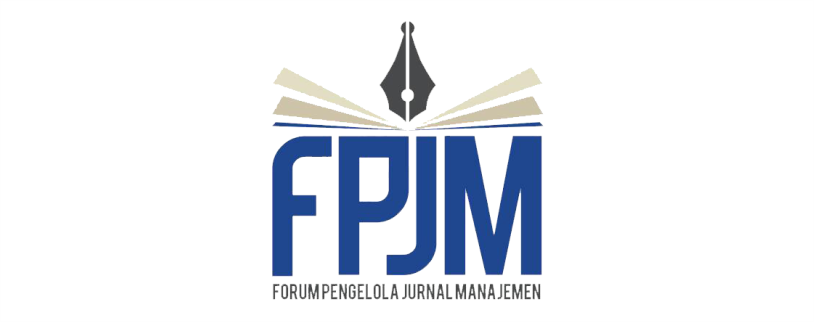Building the Concept of Small and Medium Enterprise Business Resilience: Literature Review
DOI:
https://doi.org/10.26905/jmdk.v10i1.7539Keywords:
Business, Resilience, SMEsAbstract
Business resilience research has increased rapidly and received attention from researchers. However, the literature still provides few definitions, measurements, and variables that affect the concept. Therefore, there is still a gap in contributing the latest knowledge related to these fields and putting it in this journal article. On this occasion, researchers pay special attention to the resilience of SMEs in developing countries. The importance of SME business for the national economy so that it requires attention in resilience research. The researcher applies a well-structured systematic literature review procedure. This journal article offers (1) a review of the SME resilience literature from 2015 to November 2021, consisting of 72 articles, and (2) a review, specifically for developing countries. This review concludes that the definition of resilience varies widely, and its measurement and the factors that influence it vary widely. Not much resilience research has paid attention to the context of SMEs in developing countries. Based on the review results, researchers present features that can distinguish resilience; provide an alternative to add to the theoretical basis for research on resilience in the future.
Downloads
References
Abebrese, A. (2015). Understanding entrepreneurial resilience development within institutional constraints: A case of Ghana, Thesis, Robert Gordon University,
Abylaev, M., Pal, R., & Torstensson, H. (2014). Resilience Challenges for Textile Enterprises in a Transitional Economy and regional trade perspective–A Study of Kyrgyz Conditions. International Journal of Supply Chain and Operations Resilience, 1(1), 54–75.
Adnan, A. H. M., Jaafar, R. E., Nasir, Z. A., & Mohtar, N. M. (2016). Just sisters doing business between us’: Gender, social entrepreneurship and entrepreneurial resilience in rural Malaysia. International Journal of Entrepreneurship and Small Business, 27(2/3), 273–288.
Akgün, A. E., & Keskin, H. (2014). Organisational resilience capacity and firm product innovativeness and performance. International Journal of Production Research, 52(23), 6918–6937.
Alberti, F. G., Ferrario, S., & Pizzurno, E. (2018). Resilience: Resources and Strategies of SMEs in a New Theoretical Framework. International Journal of Learning and Intellectual Capital, 15(2), 165–188. https://doi.org/10.1504/IJLIC.2018.091969
Alonso, A. D., & Bressan, A. (2015). Resilience in the context of Italian micro and small wineries: An empirical study. International Journal of Wine Business Research, 24(1), 40–60.
Annarelli, A., & Nonino, F. (2016). Strategic and operational management of organizational resilience: Current state of research and future directions. Omega, 62, 1–18.
Biggs, H., C., C., Cinner, J. E., Hall, C. M., & Biggs, D. (2015). Marine tourism in the face of global change: The resilience of enterprises to crises in Thailand and Australia. Ocean and Coastal Management, 105, 65–74.
Carvalho, A. O., Ribeiro, I., Cirani, C. B. S., & Cintra, R. F. (2016). Organizational resilience: A comparative study between innovative and non-innovative com- panies based on the financial performance analysis. International Journal of Innovation, 4(1), 58.
Castellacci, F. (2015). Institutional voids or organizational resilience? Business groups, innovation, and market development in Latin America. In World development . 70, 43–58
Cheese, P., & Cheese, P. (2016). Managing risk and building resilient organisations in a riskier world. Journal of Organizational Effectiveness: People and Performance, 3(3), 323–331.
Chiesi, A. M. (2014). Interpersonal networking and business resilience: How immigrants in small business face the crisis in Italy. European Sociological Review, 30(4), 457–469.
Chu, Y. (2015). Resilience capabilities in the face of environmental turbulence: A case of Hong Kong small to medium enterprises.
Conz, E., Denicolai, S., & Zucchella, A. (2017). The resilience strategies of SMEs in mature clusters. Journal of Enterprising Communities: People and Places in the Global Economy, 11(1), 186–210. https://doi.org/10.
Dahlberg, R., & Guay, F. (2015). Creating resilient SMEs: Is business continuity management the answer? WIT Transactions on the Built Environment, 168, 975–984.
Dahles, H., & Susilowati, T. P. (2015). Business resilience in times of growth and crisis. Annals of Tourism Research, 51, 34–50.
Djamil, M. (2018). The Management Of Micro and Small Business In Bengkulu. Jurnal Manajemen, 8(2).
Dumitraşcu, V., & Dumitraşcu, R. A. (2016). The use of fuzzy sets and elements of the information theory for assessing the resilience level of business organiza- tions. In Quality - Access to success 17, 69–85
Huggins, R., & Thompson, P. (2015). Local entrepreneurial resilience and culture: The role of social values in fostering economic recovery. Cambridge Journal of Regions Economy and Society, 8(2), 313–330.
Kamalahmadi, M., & Parast, M. M. (2016). A Review of The Literature on The Principles of Enterprise and Supply Chain Resilience: Major Findings and Directions for Future Research. International Journal of Production Economics, 171(1), 116–133.
Kantur, D., & Say, A. I. (2015). Measuring Organizational Resilience: A Scale Development. Journal of Business Economics and Finance, 4(3).
Lampel, J., Bhalla, A., & Jha, P. P. (2014). Does governance confer organisational resilience? Evidence from UK employee owned businesses. European Management Journal, 32(1), 66–72. https://doi.org/10.1016/j.emj.
Linnenluecke, M. K. (2017). Resilience in business and management research: A review of influential pub- lications and a research agenda. International Journal of Management Reviews, 19(1), 4–30.
Littlewood, D., & Holt, D. (2018). Social enterprise resilience in sub-Saharan Africa. Business Strategy & Development, 1(1), 53–63.
Manfield, R. C., & Newey, L. R. (2017). Resilience as an entrepreneurial capability: Integrating insights from a cross-disciplinary comparison. International Journal of Entrepreneurial Behavior & Research, 24(7), 1155– 1180.
Markman, G. M., & Venzin, M. (2014). Resilience: Lessons from banks that have braved the economic crisis— And from those that have not. International Business Review, 23(6), 1096–1107.
McGuinness, M., & Johnson, N. (2014). Exploiting social capital and path-dependent resources for organisational resilience: Preliminary findings from a study on flooding. Procedia Economics and Finance, 18, 447–455.
Ortiz-de-Mandojana, N., & Bansal, P. (2016). The long-term benefits of organizational resilience through sustainable business practices. Strategic Management Journal, 37(8), 1615–1631.
Page, J., & Söderbom, M. (2015). Is small beautiful? Small enterprise, aid and employment in Africa. African Development Review, 27(S1), 44–55.
Sabatino, M. (2016). Economic crisis and resilience: Resilient capacity and competitiveness of the enterprises. Journal of Business Research, 69(5), 1924–1927.
Seville, E., Van Opstal, D., & Vargo, J. (2015). A primer in resiliency: Seven principles for managing the unexpected. Global Business and Organizational Excellence, 34(3), 6–18.
Sköld, B., & Tillmar, M. (2015). Resilient gender order in entrepreneurship: The case of Swedish welfare industries. International Journal of Gender and Entrepreneurship, 7(1), 2–26.
Steiner, A., & Atterton, J. (2015). Exploring the contribution of rural enterprises to local resilience. Journal of Rural Studies, 40, 30–45.
Tengeh, R. K. (2016). Entrepreneurial resilience: The case of Somali grocery shop owners in a South African township. In Problems and perspectives in manag ment 14(4), 203-211
Tognazzo, A., Gubitta, P., & Favaron, S. D. (2016). Does slack always affect resilience? A study of quasi-medium-sized Italian firms. Entrepreneurship & Regional Development, 28(9–10), 768–790.
Torres, A. P., Marshall, M. I., & Sydnor, S. (2018). Does social capital pay off? The case of small business resilience after Hurricane Katrina. Journal of Contingencies and Crisis Management, 27(2), 168– 181.
Tranfield, D., Denyer, D., & Smart, P. (2003). Towards a Methodology for Developing Evidence-Informed Management Knowledge by Means of Systematic Review. British Journal of Management, 14, 207–222.
Tukamuhabwa, B. R., Stevenson, M., Busby, J., & Zorzini, M. (2015). Supply chain resilience: Definition, review and theoretical foundations for further study. International Journal of Production Research, 53(18), 5592–5623.
Wedawatta, G., & Ingirige, B. (2016). A Conceptual Framework for Understanding Resilience of Construction SMEs to Extreme Weather Events. Built Environment Project and Asset Management, 6(4), 428–443.
Williams, N., & Vorley, T. (2014). Economic resilience and entrepreneurship: Lessons from the Sheffield City Region. Entrepreneurship & Regional Development, 26(3–4), 257–281.
Williams, N., & Vorley, T. (2017). Creating resilient economies: Entrepreneurship, growth and development in uncertain times. UK: Edward Elgar Publishing
Downloads
Published
Issue
Section
License
Authors who publish with this journal agree to the following terms:
(1)Â Copyright of the published articles will be transferred to the journal as the publisher of the manuscripts. Therefore, the author confirms that the copyright has been managed by the journal.
(2) Publisher of Jurnal Penelitian is University of Merdeka Malang.
(3) The copyright follows Creative Commons Attribution–ShareAlike License (CC BY SA): This license allows to Share — copy and redistribute the material in any medium or format, Adapt — remix, transform, and build upon the material, for any purpose, even commercially.












